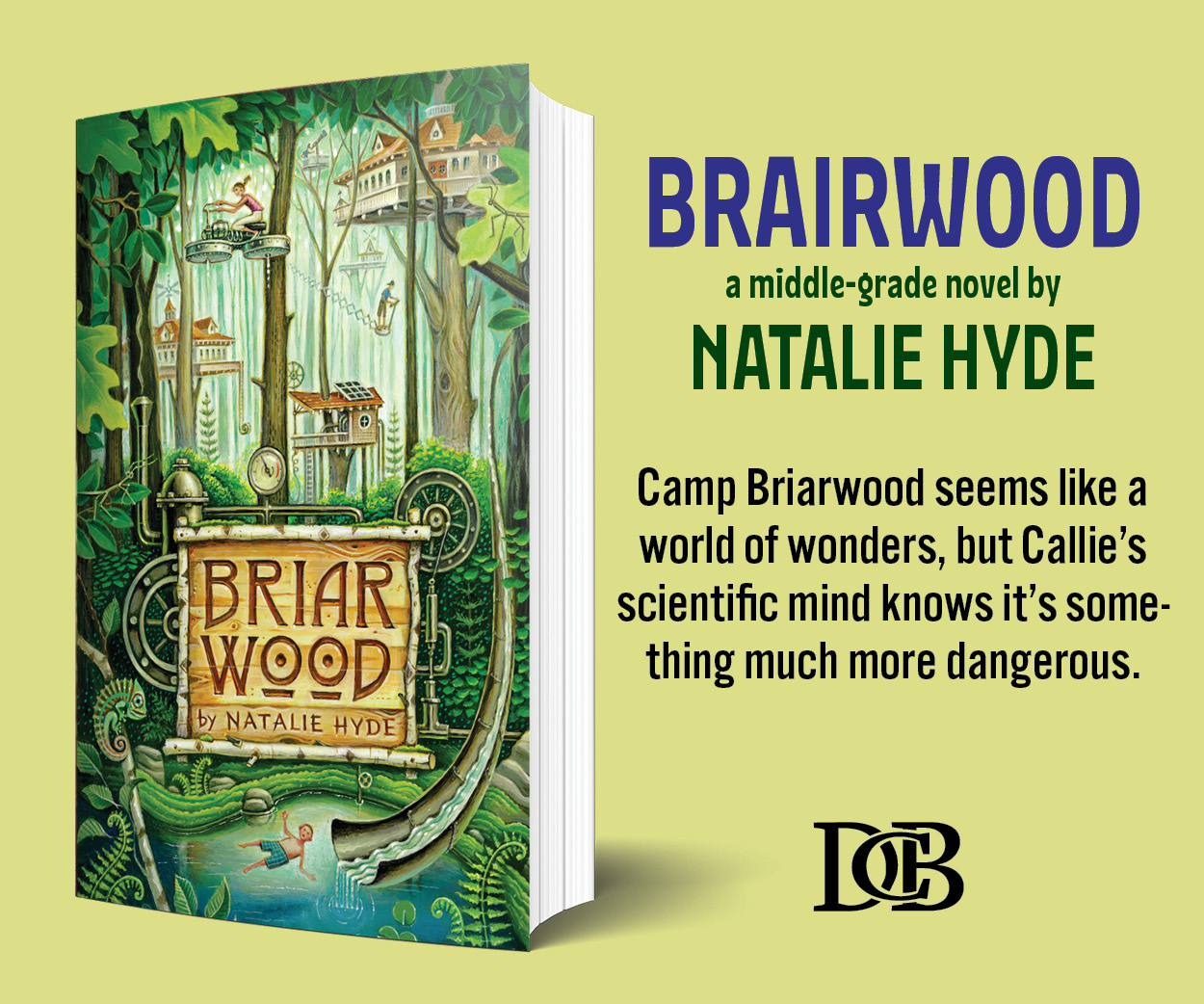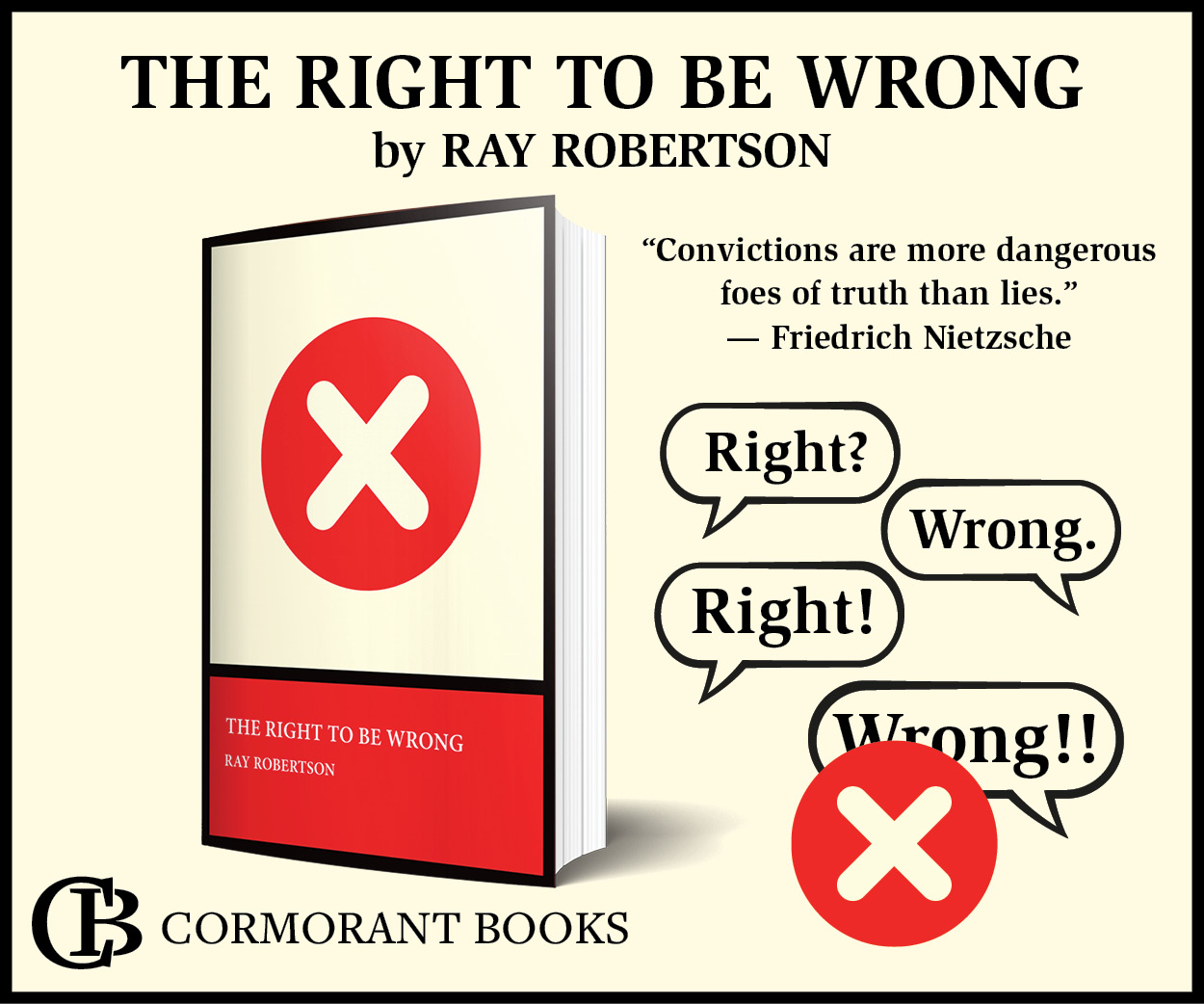"I Like it When Characters Disobey the Narrative Around Them" Seyward Goodhand on Breaking Rules & Surprising Herself
Seyward Goodhand has been creating fresh, eerie, fascinating short fiction for years (racking up nominations for honours like the Journey Prize, CBC Short Story Prize, and a National Magazine Award in the process) and her hotly anticipated collection, Even That Wildest Hope (Invisible Publishing) launches this fall.
Readers who know her work will rejoice at the stories here - full of the beautiful strangeness and wild creativity Goodhand is known for, the pieces in the collection are memorable and vibrant. Women made of wax, earth-bound gods, warring artists, and more colourful characters fill the pages and take their place on the shelves of CanLit short fiction classics.
We're excited to welcome Seyward to Open Book today to talk about Even That Wildest Hope as part of our In Character interview, hearing more about the characters who populate her stories and how they came to be. She talks about interrogating the traditional writing advice that all characters need to clearly want something, the pleasures and fears she shares with her characters, and why, even as the author, a character can always surprise you.
Open Book:
Tell us about the main character in your new work.
Seyward Goodhand:
I began this collection thinking about the "beloved" as a type. Objects of desire. Often my characters don’t really understand themselves. They’re fixated on someone else’s lusts, trying to live up to an ideal or passionately reacting against it, but they have a hard time defining their own goals. This kind of goes against the grain of drama where a character needs to want something, the clearer the better. A good rule, but I often find myself rebelling against it. I know lots of people who have passion and desire but no clear outlet for it. So they end of up festering, or drinking too much, or consuming huge amounts of stuff, or they become addicted to pyramid schemes.
The main character of the opening novella, Enkidu, is based on the wild man companion of Gilgamesh in the ancient Mesopotamian epic of the same name. Like Eve, Enkidu was created to serve. If Eve is Adam’s helpmeet, Enkidu is Gilgamesh’s beloved. His task is to absorb the king’s violent energies. So we know what Gilgamesh wants: Enkidu. But what does Enkidu want? To be seen and desired and judged? I definitely felt this way growing up. A lot of girls are raised to be beloveds, to be singled out, assessed, and pursued instead of doing their own thing. This puts the beloved at risk of an odd self-negating but self-obsessed need to be absorbed into another person’s consciousness—it puts them at risk of a kind of circularity where all the beloved wants is to be loved. Little Buff Duck, Agvagvat, the Dairymaid. Really what they want is to know what they want. They want a path for their energies. This also maybe helps explain the violence of these characters: their self-enlargement or self-fashioning makes them destructive of others. They’re looking for an authority to tell them who they are, and they discover no one has a right to this kind of authority. Then they either feel afraid or angry.
OB:
Some writers feel characters take on a "life of their own" during the writing process. Do you agree with this, or is a writer always in control?
SG:
Definitely one of my biggest pleasures as a writer is when a story or character escapes my control. I like to follow the story’s lead and just see what happens. Oddly, I find this works best when I’ve made some conscious decision beforehand—it can be a totally arbitrary choice. I think of Bulgakov’s Pontius Pilate character in The Master and Margarita who walks into his first scene with a terrible headache. The headache guides all of his actions. It seems gleefully random. I’m really giddy and happy if I make an arbitrary decision like that and it works. I feel like it’s when I’m most original and free.
OB:
What is your approach to crafting dialogue, particularly for your main character? Do you have any tips about writing dialogue for aspiring and emerging writers?
SG:
My favourite kind of dialogue has a feeling of the non sequitur. With dialogue, anything could happen, there’s a mad freedom to it. I like it when characters disobey the narrative around them, or refuse to be very sensibly used by the writer to ‘reveal something’ or to ‘move the plot forward.’ When characters say anything and when there’s an energy that doesn’t care about the writer’s technical purposes, necessary as those are, I feel elated. For me, David Lynch is a good example of this. His characters say random things all the time, his scenes go on and on past the point of absurdity, but I never feel bored. It feels exciting and true to the characters. There’s a beautiful “just is” to that kind of dialogue that isn’t working in the service of meaning. It’s also risky. I think, at its liveliest, dialogue is the most specific, concrete line you can write, the closest thing to theatre, a moment where the fiction really comes alive. If it’s closest to reality, maybe it should also be the most free.
Your CanLit News
Subscribe to Open Book’s newsletter to get local book events, literary content, writing tips, and more in your inbox
OB:
Do you have anything in common with your main character (or other characters in your most recent work)? What parts of yourself do you see in him or her, and what is particularly different?
SG:
A juvenile pleasure in poking someone just to see what happens, and a fear of not really existing, of disappearing into my molecules and merging with space.
OB:
How clearly do you picture or see your characters' physical appearances while writing, and how relevant are their appearances to your writing process?
SG:
I like to describe surfaces until they give out an unexpected feeling, so my characters’ appearances are delightful to me. Physical appearances are emotional in my fiction.
OB:
How well do you "know" your characters? Is it relevant to you to know a lot of information about them that doesn't appear on the page?
SG:
As my previous answers probably tell you, it takes me a long time to figure out what my characters want (even longer to figure out what I want). So yes, because I spend so much time trying to figure my characters out, I sometimes feel like I know them better than myself. Maybe that’s just how stories work: no matter how hard I try to resist the imperative to define a character’s desires, they still end up being more decisive than I am because they’re in a story. I think this is true of all characters, but especially in tales. A character in a tale is so passionate and singular; they want one thing ‘more than anything else in the world.’ It’s a desirable fantasy to always want something so much, to exist in a constant state of attentiveness with all our energies converged upon the same mission. In real life we’re more vague, more passive and just responding to things that happen. Even if a character is indecisive and feels lost it’s in such an impassioned, directed manner that as we read maybe we feel saved from our own vagueness. I do, at least.
But you know, regardless of how well we understand our characters I think the great thing about them is they can always do an about-face and surprise you. They can have some kind of secret reformation and change from one paragraph to another. Why did they change? You want to keep writing to find out.
_________________________________________
Seyward Goodhand grew up in Hastings County and the North York suburb of Newmarket. Her work has been short-listed for the McClelland & Stewart Journey Prize and a National Magazine Award and long-listed for the CBC Short Story Prize. Her award winning stories have appeared in Found Press, Riddle Fence, Cosmonauts Avenue, subTerrain, PRISM international, Grain, and Dragnet. She is a PhD student in English at the University of Toronto, and lives Winnipeg where she is a sessional instructor of academic writing.




